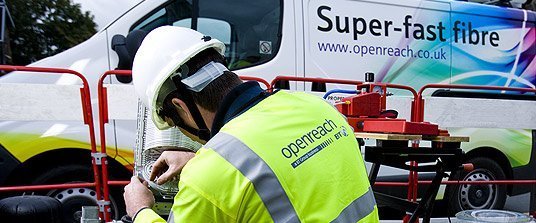
Beneath the surface of superfast broadband this and ultrafast broadband that there is an interesting sub-sector developing. The Financial Times claims the scoop today of a £24 million fund raising by Gigaclear to fuel it rural broadband push, although it was analysts at IT consultancy boutique Megabuyte that first flagged the cash call on 29 March.
Gigaclear was founded in December 2010 by Matthew Hare, shortly after selling his previous business, Community Internet Group to MDNX/Easynet. Gigaclear targets rural communities and business parks, building fibre to the premise (FTTP), or fibre to the home as it is often call (FTTH). The company has raised considerable debt and equity totalling an estimated £69 million prior to today's new investment, so £93 million at the latest count, and has plans to raise as much as £90 million in 2016.
Now Gigaclear remains a privately-owned business, with Neil Woodford and the Pru among its lead investors. It tried to pull off an IPO in 2014 but failed to get it away. That means it remains a closed shop to private investors for now (don't be shocked to see it try to float again down the line) but there are some fascinating similarities to AIM-listed CityFibre (CITY:AIM).
It joined the junior market on 17 January 2014 after raising £16.5 million at 60p, and has since raised considerably more since. CityFibre differs from Gigaclear in that it is focusing on dark fibre networks (fibre in the ground already but unused) in medium-sized UK cities, places like York, Hull, and Edinburgh. Incidentally, CityFibre signed up two new network partners in Bradford and Leeds today, building on its £90 million network acquisition from KCOM( KCOM) in December.
Gigaclear wants to connects villages to a much faster broadband network, so similar but not the same.
Perhaps coincidentally, Gigaclear and CityFibre have rough £120 million market valuations.
But both form part of a vanguard, that includes Sky (SKY), TalkTalk (TALK) and Virgin, trying to provide an alternative to Openreach, the broadband infrastructure arm of BT (BT.A). Openreach currently serves about four out of five homes and businesses across Britain but it has been criticised for being rather too slow in bringing superfast internet to the regions. That story is now being played out via an enquiry by Ofcom.
This is an interesting space, one that investors would do well to watch.






